Editing without 'cutting': Molecular mechanisms of new gene-editing tool revealed
 Researchers elucidate the spatial structure and molecular mechanisms of 'prime editor', a novel gene-editing tool.
Researchers elucidate the spatial structure and molecular mechanisms of 'prime editor', a novel gene-editing tool.
May 29th, 2024
Read more
 Subscribe to our Biotechnology News feed
Subscribe to our Biotechnology News feed
 Researchers elucidate the spatial structure and molecular mechanisms of 'prime editor', a novel gene-editing tool.
Researchers elucidate the spatial structure and molecular mechanisms of 'prime editor', a novel gene-editing tool.
May 29th, 2024
Read more Researchers have developed a groundbreaking platform that empowers life scientists to harness cutting-edge, deep learning techniques for biomedical research.
Researchers have developed a groundbreaking platform that empowers life scientists to harness cutting-edge, deep learning techniques for biomedical research.
May 27th, 2024
Read more Study suggests nanocarriers loaded with DNA could replace opioids.
Study suggests nanocarriers loaded with DNA could replace opioids.
May 16th, 2024
Read more Creating tiny, laboratory grown organs is one of the latest developments in the search for new personalised medical treatments.
Creating tiny, laboratory grown organs is one of the latest developments in the search for new personalised medical treatments.
May 16th, 2024
Read more Researchers have developed a protein-?based gel that breaks down alcohol in the gastrointestinal tract without harming the body. In the future, people who take the gel could reduce the harmful and intoxicating effects of alcohol.
Researchers have developed a protein-?based gel that breaks down alcohol in the gastrointestinal tract without harming the body. In the future, people who take the gel could reduce the harmful and intoxicating effects of alcohol.
May 13th, 2024
Read more Researchers learn to control peptoid 'handedness', one key to precision drug delivery and diagnostics.
Researchers learn to control peptoid 'handedness', one key to precision drug delivery and diagnostics.
May 10th, 2024
Read more A new technique in building DNA structures at a microscopic level has the potential to advance drug delivery and disease diagnosis, a study suggests.
A new technique in building DNA structures at a microscopic level has the potential to advance drug delivery and disease diagnosis, a study suggests.
May 9th, 2024
Read more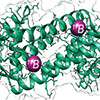 Boronic acid, not naturally occurring, enables unique chemical reactions. An engineered enzyme with boronic acid enhances selectivity and power, offering a more sustainable alternative.
Boronic acid, not naturally occurring, enables unique chemical reactions. An engineered enzyme with boronic acid enhances selectivity and power, offering a more sustainable alternative.
May 9th, 2024
Read more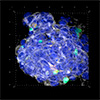 The pioneering biological research and development measures changes in immune system cells adjacent to cancer cells, providing crucial insights into the patient's immune response and potentially enhancing the effectiveness of immunotherapy.
The pioneering biological research and development measures changes in immune system cells adjacent to cancer cells, providing crucial insights into the patient's immune response and potentially enhancing the effectiveness of immunotherapy.
May 6th, 2024
Read more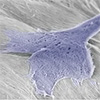 The development of a novel fabrication process to create aligned nanofiber hydrogels could offer new possibilities for tissue regeneration after injury and provide a way to test therapeutic drug candidates without the use of animals.
The development of a novel fabrication process to create aligned nanofiber hydrogels could offer new possibilities for tissue regeneration after injury and provide a way to test therapeutic drug candidates without the use of animals.
May 3rd, 2024
Read more Researchers report 3D printing a bioink containing plant cells that were then genetically modified, producing programmable materials.
Researchers report 3D printing a bioink containing plant cells that were then genetically modified, producing programmable materials.
May 2nd, 2024
Read more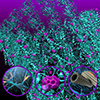 A new study reports the discovery of a distinctly quantum effect in biology that survives warm, chaotic conditions and may also present a way for the brain to protect itself from degenerative diseases like Alzheimer's.
A new study reports the discovery of a distinctly quantum effect in biology that survives warm, chaotic conditions and may also present a way for the brain to protect itself from degenerative diseases like Alzheimer's.
Apr 29th, 2024
Read more Scientists have found a protein that is responsible for turning off brown fat activity. This new discovery could lead to a promising strategy for safely activating brown fat and tackling obesity and related health problems.
Scientists have found a protein that is responsible for turning off brown fat activity. This new discovery could lead to a promising strategy for safely activating brown fat and tackling obesity and related health problems.
Apr 29th, 2024
Read more Researchers have developed a method to determine how reliably target proteins can be labeled using super-resolution fluorescence microscopy.
Researchers have developed a method to determine how reliably target proteins can be labeled using super-resolution fluorescence microscopy.
Apr 24th, 2024
Read more Researchers have developed a powerful, new technique to generate 'movies' of changing protein structures and speeds of up to 50 frames per second.
Researchers have developed a powerful, new technique to generate 'movies' of changing protein structures and speeds of up to 50 frames per second.
Apr 17th, 2024
Read more Largest global citizen science project accelerates knowledge of human microbiome.
Largest global citizen science project accelerates knowledge of human microbiome.
Apr 16th, 2024
Read more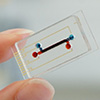 Researchers developed an innovative microfluidic platform that is capable of replicating key human gastrointestinal processes, offering a game-changing tool for the assessment of newly-developed drugs and/or food supplements.
Researchers developed an innovative microfluidic platform that is capable of replicating key human gastrointestinal processes, offering a game-changing tool for the assessment of newly-developed drugs and/or food supplements.
Apr 15th, 2024
Read more Cas13d-NCS, a breakthrough CRISPR tool, enhances RNA-targeting efficiency, combating viruses like SARS-CoV-2 and advancing precision medicine.
Cas13d-NCS, a breakthrough CRISPR tool, enhances RNA-targeting efficiency, combating viruses like SARS-CoV-2 and advancing precision medicine.
Apr 12th, 2024
Read more